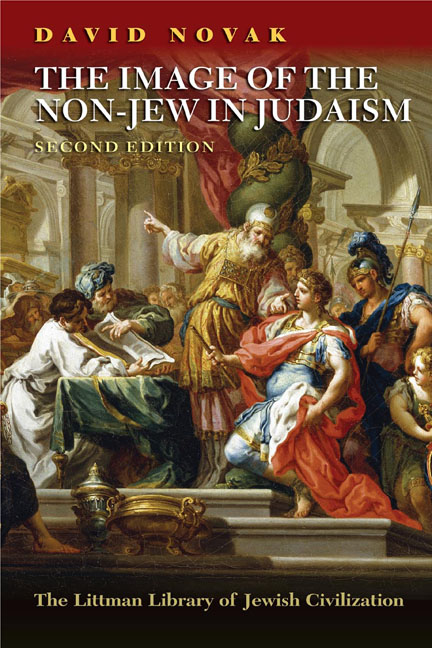Book contents
- Frontmatter
- Dedication
- Preface
- Acknowledgments
- Contents
- Chapter Summaries
- 1 The Origins of the Noahide Laws
- 2 The Law of Adjudication
- 3 The Law of Blasphemy
- 4 The Law of Idolatry
- 5 The Law of Homicide
- 6 The Law of Sexual Relations
- 7 The Law of Robbery
- 8 The Law of the Torn Limb
- 9 Aggadic Speculation
- 10 Maimonides’ Theory of Noahide Law
- 11 Albo's Theory of Noahide Law
- 12 Late Medieval Developments
- 13 Moses Mendelssohn and his School
- 14 Hermann Cohen and the Jewish Neo-Kantians
- 15 Conclusion
- Afterword
- List of Abbreviations
- Notes
- Bibliography
- Index
3 - The Law of Blasphemy
- Frontmatter
- Dedication
- Preface
- Acknowledgments
- Contents
- Chapter Summaries
- 1 The Origins of the Noahide Laws
- 2 The Law of Adjudication
- 3 The Law of Blasphemy
- 4 The Law of Idolatry
- 5 The Law of Homicide
- 6 The Law of Sexual Relations
- 7 The Law of Robbery
- 8 The Law of the Torn Limb
- 9 Aggadic Speculation
- 10 Maimonides’ Theory of Noahide Law
- 11 Albo's Theory of Noahide Law
- 12 Late Medieval Developments
- 13 Moses Mendelssohn and his School
- 14 Hermann Cohen and the Jewish Neo-Kantians
- 15 Conclusion
- Afterword
- List of Abbreviations
- Notes
- Bibliography
- Index
Summary
Introduction
The law of blasphemy is designated in the Tosefta as qilelat Ha-Shem, “cursing the name.” In other Tannaitic sources, however, it is usually termed euphemistically as birkat Ha-Shem, “blessing the Name,” indicating the reluctance of ancient Jews to couple the name of God with a curse. The law of blasphemy is marked by the use of Tetragrammaton (YHWH) as the second word in Gen. 2:16, “And the Lord God commanded …” Because the Tetragrammaton is the most unambiguous word in Scripture, there is no discrepancy in the rabbinic presentations of the seven Noahide laws. In all of them blasphemy is the second law.
In the Pentateuch the explicit reaction to the crime of blasphemy is addressed to the people of Israel. The crime seems to include both cursing God with the Tetragrammaton as well as cursing Him with other names:
And to the people of Israel you shall speak saying: any man who curses his God shall be put to death (mot yumat); all the congregation shall surely stone him (Lev. 24:15–16).
In the Talmud it is debated whether cursing God in general is the legal equivalent of the use of the Tetragrammaton in such a curse:
“When he curses his God” … this includes the use of the substitute names in the opinion of R. Meir. But the sages say only use of the Unique Name (Shem Hameyuhad) is punishable by death; use of other names is only the transgression of a prohibition (azharah).
The view of the sages is explicitly presented in the Mishnah: “The blasphemer (ha-megadef) is not liable for the death penalty until he enunciates (sheyifaresh) the Tetragrammaton.” Maimonides ruled that this applies to cursing the substitute name for the Tetragrammaton (Shem Adnut) as well as the literal name. This position seems to be in effect a middle ground between the two Talmudic views presented above.
The crime of blasphemy is applied to non-Jews by an extension of the passage in Lev. 24:15–16:
R. Meyaysha said that a Noahide who cursed (she-birekh) the Name using substitution (be-kinuyyim) is guilty and liable for the death penalty, according to the rabbis. For what reason? When Scripture states (Lev. 24:16), “the alien (ke-ger) is like the native-born (k'ezrah),” this applies to blaspheming the Name; but a gentile is guilty even for a substitution.
- Type
- Chapter
- Information
- The Image of the Non-Jew in JudaismThe Idea of Noahide Law, pp. 53 - 64Publisher: Liverpool University PressPrint publication year: 2011

